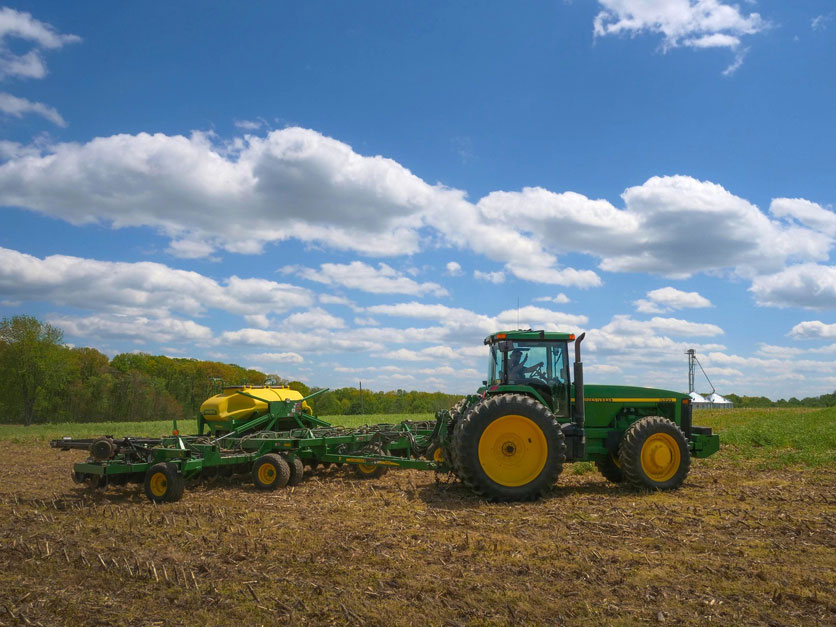A landmark bill aimed at smoothing the development of ag carbon markets has been thoroughly rewritten to protect farmers and to give them more say over the certification of credit verifiers and technical advisers.
The Senate Agriculture Committee will consider the new version of the Growing Climate Solutions Act on Thursday. The new version has at least 35 co-sponsors, 18 Republicans, 16 Democrats and one independent, Angus King of Maine.
The new 34-page bill, like the original 20-page version introduced last spring with four Senate co-sponsors, would put the Department of Agriculture in charge of creating a program to certify credit verification services and technical assistance providers.
The latest version, however, reflects extensive negotiations between the bill’s original sponsors Senate Agriculture Committee Chairwoman Debbie Stabenow, D-Mich., and Indiana GOP Sen. Mike Braun with the committee’s ranking Republican, John Boozman, R-Ark. Boozman has expressed concern that carbon markets would unfairly benefit credit traders rather than farmers.
The "bill is a perfect example of how we can work across the aisle and find common ground to address a critical issue affecting all of us and our future," said Stabenow.
Elizabeth Gore, senior vice president for political affairs with the Environmental Defense Fund, said the bill has a “real chance of becoming law this Congress.”
A new section of the bill, titled “Fair Treatment for Farmers,” would require USDA to ensure technical assistance providers and credit verifiers provide farmers with realistic cost and revenue estimates. The USDA-approved technical assistance providers also would be charged with helping farmers, ranchers and foresters to “receive fair distribution" of the revenue derived from the sale of carbon credits.
The new bill also contains provisions aimed at encouraging the inclusion of beginning and minority farmers in credit trading.
Another major change in the bill is the overhaul of a USDA advisory committee that would have extensive authority to shape certification requirements and responsibility for continually reviewing the program.
Under the original bill, the committee would have had at least 25 members, 10 of whom would have been from agriculture. An additional three would have represented forestry. Under the new version, more than half the committee members, or at least 16 members in all, would have to be either farmers, ranchers or private forest owners.
The committee would also have representatives from research universities as well as USDA, EPA and the National Institute of Standards and Technology, an arm of the Commerce Department that provides measurement infrastructure to industry standards.
Representatives of universities would have to include one from an historically Black institution, and one of the three representatives form civil society organizations would have to include a representative of minority farmers.
The bill authorizes up to $9.1 million in funding for USDA to operate the program. That includes $4.1 million that would be immediately available out of the $1.9 trillion economic stimulus plan enacted in March, plus $1 million a year in additional funding for five years.
Boozman said the bill "will help empower farmers, ranchers and private forest landowners to build on that progress in a manner that rewards them for their efforts,”
Most of the Senate Agriculture Committee's 22 members are sponsors of the new bill with the exception of Democrats Pat Leahy of Vermont, Richard Durbin of Illinois, Cory Booker of New Jersey and Kirsten Gillibrand of New York and Republicans Tommy Tuberville of Alabama and Mitch McConnell of Kentucky.
Other co-sponsors include Senate Environment and Public Works Committee Chairman Tom Carper, D-Del.; Senate Finance Chairman Ron Wyden, D-Ore.; and Rhode Island Democrat Sheldon Whitehouse, a long-time advocate of acting on climate change.
Interested in more coverage and insights? Receive a free month of Agri-Pulse West.
More than 60 organizations and corporations endorsed the new bill, ranging from Cargill and General Mills to the American Farm Bureau Federation and National Farmers Union to the Environmental Defense Fund and the National Wildlife Federation. Numerous commodity groups also are backing the measure.
A similar version of the new bill is being re-introduced in the House by Reps. Abigail Spanberger, D-Va., and Don Bacon, R-Neb.
AFBF President Zippy Duvall said the bill "empowers USDA to provide information about carbon market options and develops a certification program to verify the legitimacy (of carbon credits) in somewhat of a referee-type style."
The bill is being rolled out just ahead of a global leaders summit on climate President Joe Biden is hosting online Thursday and Friday. Biden also is expected to release a new pledge for reducing U.S. greenhouse gas emissions this week.
Chris Harbourt, global head of Indigo Carbon for Indigo Ag, one of the first companies to monetize agricultural carbon sequestration, said the new version of the bill “can strengthen the existing voluntary carbon market by providing a USDA stamp of approval on high quality greenhouse gas (GHG) credit programs that provide incentives to farmers to participate in these markets.”
For more news, go to www.Agri-Pulse.com.


